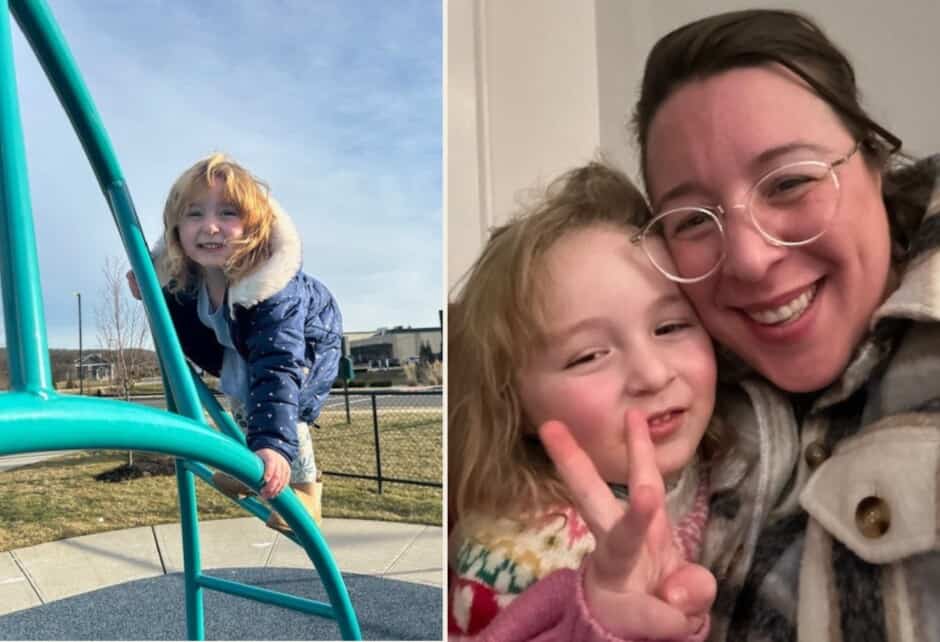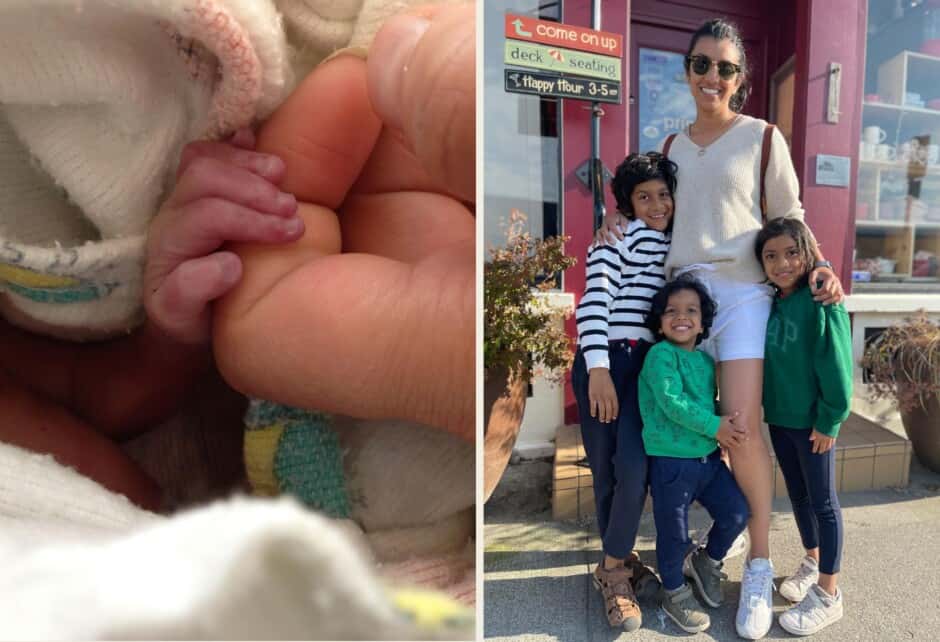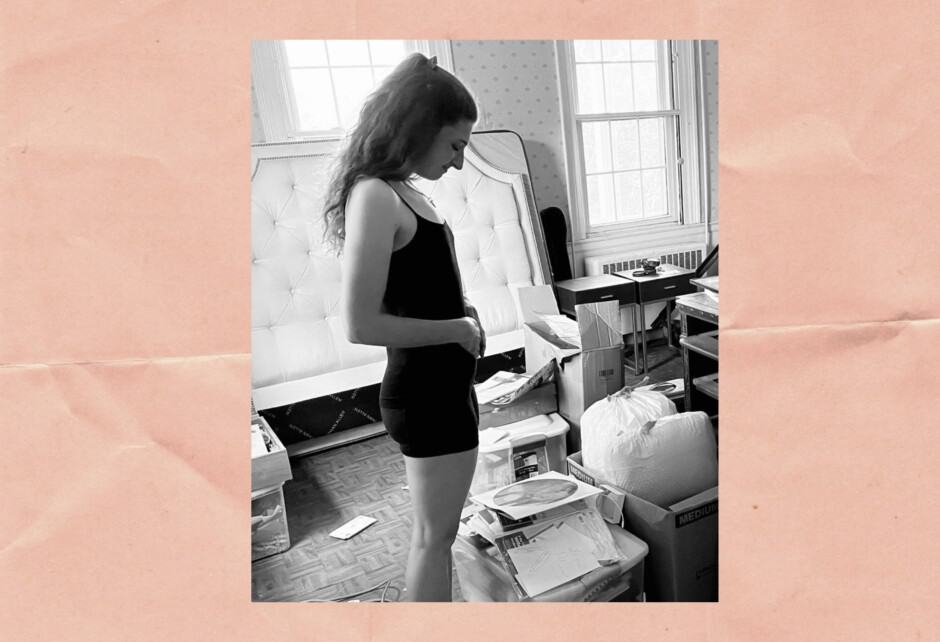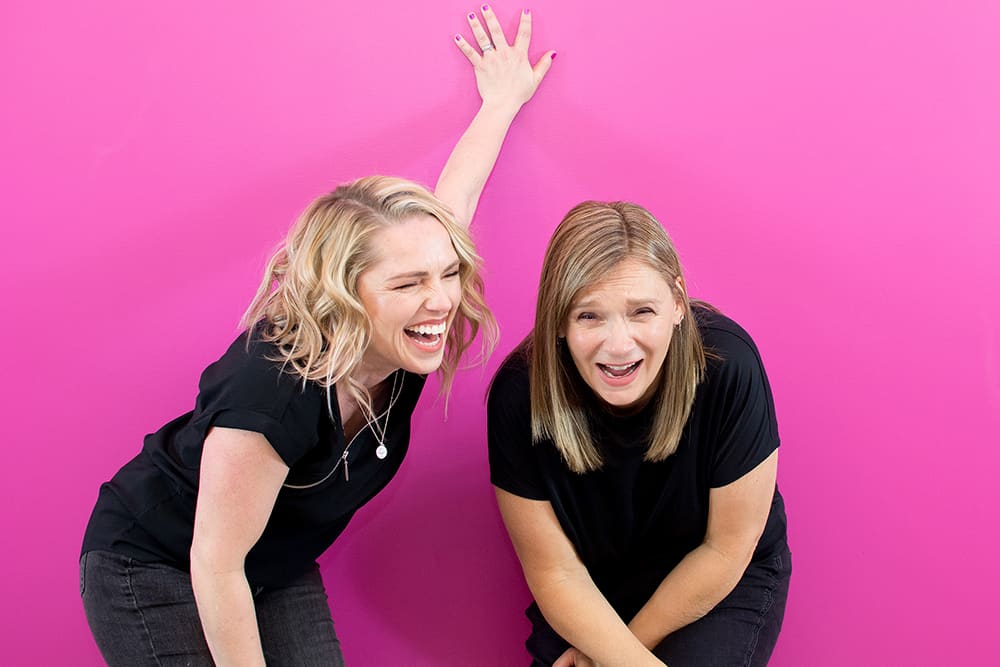
Mom Talk: Out & Proud, As A Family
Written by Jaimie Kelton and Robin Hopkins
Photography by Photo Courtesy of If These Ovaries Could Talk
The authors of today’s Mom Talk—Jaimie Kelton and Robin Hopkins—are co-hosts of the podcast If These Ovaries Could Talk and authors of the brand-new book If These Ovaries Could Talk: The Things We’ve Learned About Making An LGBTQ Family. They’re both moms, they’re both lesbians married to other ladies, and they each have two kids. Below, they each discuss—solo and together—having kids in a nontraditional family and how that forces you to be out and proud at all times.
When I went to my first Dyke March, wearing my combat boots again, of course, I carried a sign that said, “I won’t give up until heterosexual is not the assumption.” Such a badass, I know. But in my early lesbian years, I felt compelled to prove to the world that I was gay, and I used fashion and attitude to attempt that. None of it ever worked. Everyone always assumes I’m straight when they first meet me.
As I got older and more established in my lesbian ways, I learned to drop the fact that I was a lesbian into the conversation as quickly as possible when first meeting someone, to avoid any awkwardness later on. “Hi, I’m Jaimie. My wife couldn’t be here tonight. Did I mention I have a wife?” Or something smooth like that. This way, the person wouldn’t ask me questions about my husband, and we wouldn’t have to have an awkward moment. I don’t like to make people feel bad when they just didn’t know. I don’t like to rock the boat. But I did this with people who mattered, people whom I knew would stay in my life. However, those who didn’t matter, like the bodega owner, or the cab driver, I let pass. Why waste my breath? I’ll never see them again, anyway.
Enter babies. Once those suckers came into my life, I realized that it was my job to show my pride in our family to every person we meet because my kids would be watching. I have to use the word “lesbian” with power and authority and not whisper it like it’s a bad word. Have you ever noticed how many people whisper that word in conversation? It’s astounding. I never want my kids to feel ashamed that they have “lesbians” as mothers. I’ve got to let them know that my relationship and their family are both totally okay. And I have to believe it too. And I’ve worked really hard to believe it, even though mainstream society shows me, time and time again, that it’s not the norm. There are people out there who actually think it’s wrong, and I’m done condoning their ignorance. My kids deserve that.
So now, when the guy at Home Depot tells me how lucky I am to have grandma helping (yes, that happened, much to my wife’s chagrin, I also look young), I tell him, “She’s not my mom, she’s my wife, dude. Can you point me to the track lighting?” And then I have a laugh with my wife and daughter and go about my gay day.
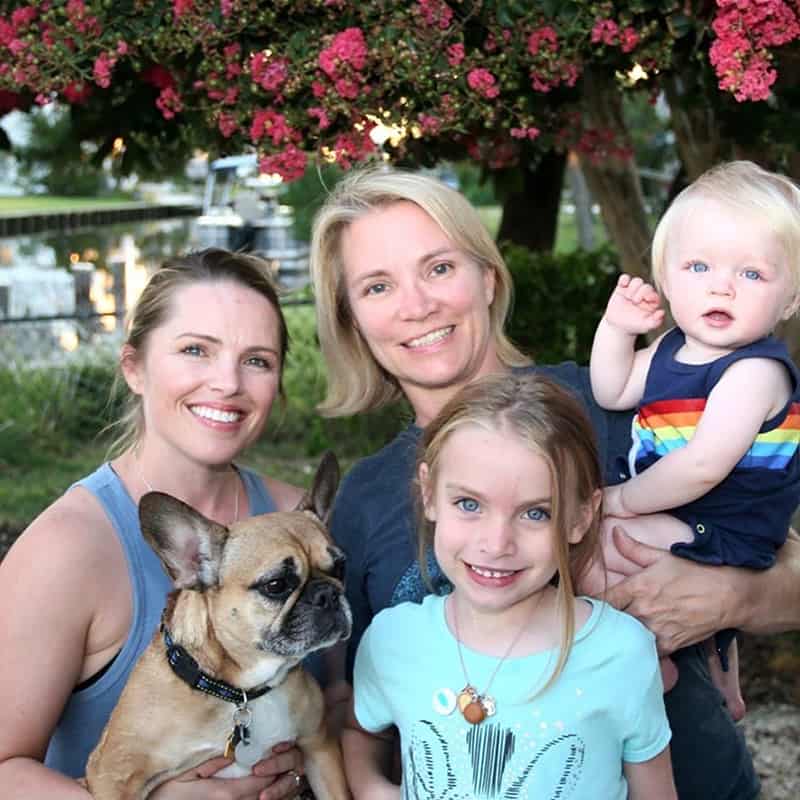
Jaimie (far left) and her family.
Years later, when meeting a new person or starting a new job, I became a pro at dropping in references about my wife or softball so that my lesbianism was quickly established, and we could all carry on with our days. There was no longer a process of coming out. It was just who I was, and I was very comfortable with that.
Then I got pregnant, and before the baby was even out of my uterus, I had to begin the coming out process all over again, but this time as an LGBTQ parent.
Being pregnant or having a baby meant we had to be out at the OBGYN waiting room while sitting amongst the heterosexual couples, out as we took a walk to the store with the baby, out in our apartment building, out at the playground as we met other parents. Whether or not we chose it, we were suddenly out, Out, OUT!
With that came an onslaught of fears about how we would be treated as a nontraditional family.
I remember sitting with my wife, Mary, in front of the administrator of the daycare where we wanted to score a coveted spot in the infant room. Our eyes darted about the place looking for health code violations, while simultaneously asking pointed questions like, “We’re two moms. Is that going to be a problem for the staff or any of the teachers?” Since Mary and I weren’t members of the KGB with vials of truth serum in our pockets, we had to trust this lady’s answers. We had to believe that her staff would treat our children just like all the other kids when we weren’t around.
As my kids have gotten older, I’ve worried about whether a classmate is really unavailable for a playdate or if the parents are big ol’ homophobes. I’ve never gotten any indication of the latter, but that doesn’t stop me from wondering about it.
The reality is I’ll never know what’s in a parent’s heart or mind when they cancel a playdate or aren’t as chatty with me as they have been at past school events. But I can’t waste my time focusing on that. Especially when that parent might just think I’m annoying. It happens.
Instead, I try to spend my time modeling pride in our family. And I hope that the result is that my kids will be so comfortable with our nontraditional family that they’ll quickly drop in references to their two moms and how they play a lot of softball. And everyone will get it and move on with the conversation.
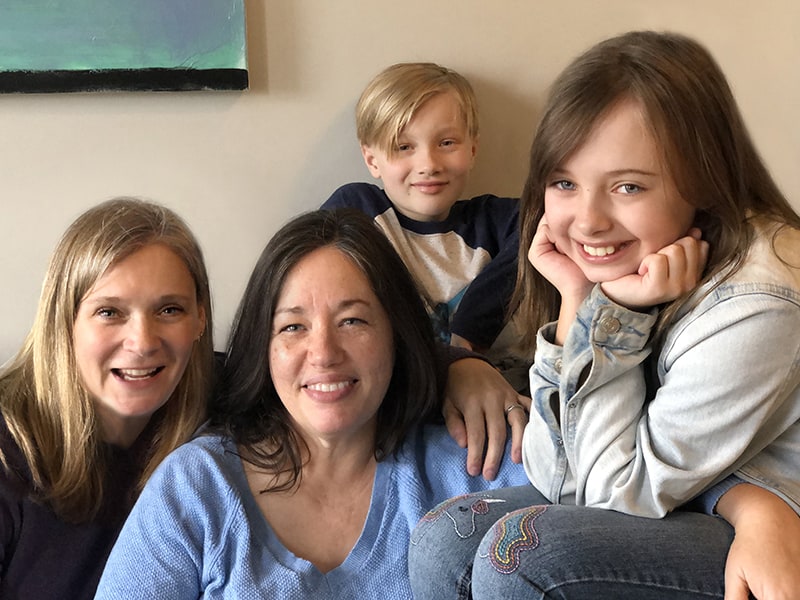
Robin (far left) and her family.
The cold hard fact is that when we have a baby in an LGBTQ relationship, the number of times it forces us to be out as a family is multiplied exponentially from our single days.
We have to deal with the public school system where forms say “Mother” and “Father,” and they have events like “Daddy and Daughter Dances.” We need to investigate summer camps to find out how they feel about same-sex families. At the dentist or the doctor, the staff will inquire about our family medical history and we’ll need to talk openly about our donors. And we’ll be asked by absolute strangers, “Who’s the real mom?” on more occasions than we’d ever imagined possible.
These situations happen all the time, and often in front of our kids. So, we have to be thoughtful and careful about how we handle being out as a family because our kids are always listening.
Excerpts from If These Ovaries Could Talk: The Things We’ve Learned About Making an LGBTQ Family. Copyright © 2020 Jaimie Kelton and Robin Hopkins. All rights reserved. Reprinted with permission from Lit Riot Press. Tune in to the If These Ovaries Could Talk Podcast.
Are you a mother with something to say? Send us an email to be considered for our “Mom Talk” column.
Share this story

